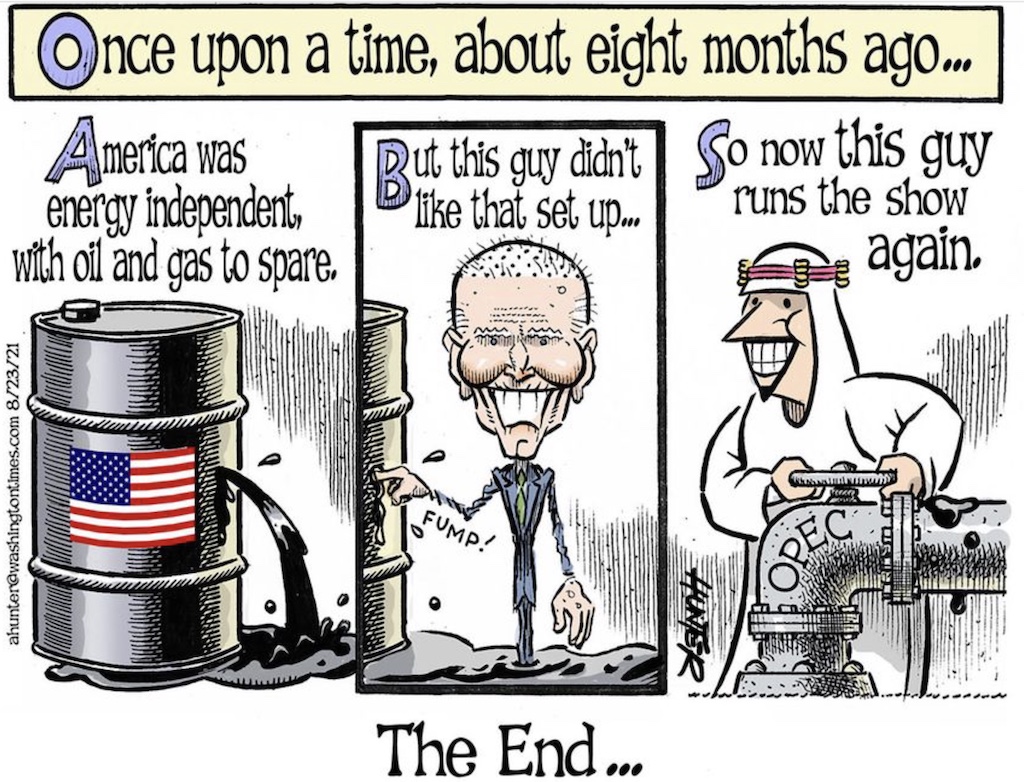A week ago, USA TODAY reported Joe Biden’s approval rating at 38%. That’s a new low (equal to Trump’s worst). And, a year into his presidency, 76% of independents don’t want him to run in 2024. This begs the question: can he even win re-election? The Washington Examiner cartoon (above) explains everything: take good situation…make bad situation…seek help from enemies…get no help…blame US companies.
Americans paid $2.18 for gas a year ago, when the USA was energy independent. They now pay $3.42, after Joe Biden stopped fracking, offshore drilling, and pipeline construction. OPEC just rejected Biden’s pleas to pump more oil, causing Bank of America to predict “gas prices will zoom [in 9 months] 45% higher” (source: CNN). Get a load of the Biden Explanation: “there’s a lot of anxiety…gas prices are up…these gas companies are gouging people” (source: WKRC).
That blame game was almost as embarrassing as his Saturday Night Live skit at the COP26 climate summit. The French press dissed Biden for admitting his “clumsy” statecraft. China’s press ridiculed his apology for “the last administration,” predicting in four years “Republicans would apologize for Biden’s apology.” Sky TV aired video of him nodding off in a meeting – and that’s the good part.
Twitter lit up after his “bathroom accident at the Vatican,” and UK tabloids reported the Duchess of Cornwall won’t shut up about Biden’s flatulence that was so “long and loud” it was “impossible to ignore.” This is not what “breaking news” is supposed to infer when an American president is on the world stage. Unfair? Of course, but sending Uncle Weezer to a global summit is a bad look.
Reagan was beloved. Bush One was respected. Clinton was clever. Bush Two was athletic. Obama was charismatic. Trump was feared. Not since Jimmy Carter has an American president been the butt of the smart set’s cocktail party jokes. Maybe “seen but not heard” is a good short-term goal for Biden. Heh-heh-heh.
